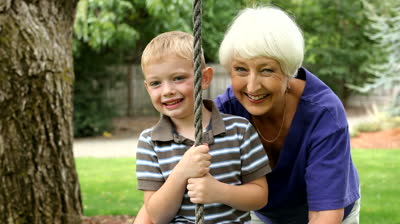
Borderline personality disorder. Asperger syndrome. Mood disorder not otherwise specified. Schizophrenia.
Rachel was diagnosed with these mental illnesses and disorders. Then she gave birth to her first son, Henry.
During Henry’s first year of life, Rachel was frightened by him. She heard him speak to her at length, even though his mouth was not moving, and she feared that he wanted to kill her. For almost an entire year, Rachel kept a barrier over her son’s crib so that she would not have to see him. She told her case worker that she hated Henry and wanted to hurt him, even though she knew she could not act on these feelings. To treat her mental illnesses, she took several different anti-psychotropic medications. But she also had a history of abusing heroin, marijuana, and alcohol, combinations that can be increasingly dangerous when paired with such powerful prescription medications.
After nearly a year of being neglected by his mother, the Division of Child Protection and Permanency removed Henry from his home and placed him into a caring foster home. Henry was a very intelligent boy, but it is not surprising that he had some behavioral problems, as he had spent a year in a neglectful home. Sometimes he banged his head against a wall if he did not get his way, and occasionally he would hit others when angry.
By age two, he entered daycare and did well socializing with other toddlers and following teachers’ instructions. Henry’s CASA volunteer, Kathy, was assigned to his case at this time. She visited him in his foster home and also spoke with teachers to make sure he was adjusting well and receiving the care he needed.
Because of Henry’s traumatic childhood, Kathy knew how important a permanent home would be for the boy. When she realized that Henry was starting to form bonds with his foster family, who had no intentions of adopting him, Kathy quickly advocated for him to be placed in a pre-adoptive foster home.
Thankfully, the family court judge agreed with Kathy’s recommendation and soon after, Henry was placed in a new pre-adoptive foster home with a young couple. The new foster family made a book for young Henry to teach him what it means to be adopted. “This is your new brother,” one of the pages read, with a photo of their young son.
At first, Henry was doing well in his new home and was getting along with his new brother. But a few months later, his pre-adoptive family indicated to Kathy that Henry’s behavioral changes were upsetting. The couple was concerned for the safety of their biological son, who Henry sometimes treated aggressively.
Unfortunately, the family felt they could no longer go through with the adoption process.
To many involved with Henry’s case, he was showing early signs of Asperger syndrome, an illness that affected his mother. However, all testing came back negative. Kathy does not believe Henry has any type of mental illness.
“I know that it is very easy to look at the record and say, ‘Oh, yeah, he’s probably got a mental illness,'” Kathy said. “I don’t think that’s fair. He was never given a chance to be who he is… he has been traumatized twice, first from his family and then from the system. He hasn’t been given any consistency or permanency for any aspect of his life. He has switched families, brothers; how can you evaluate a child’s mental health when there’s been no normalcy in his life?”
She believes his behavioral issues were related to the trauma he experienced since he was born. Kathy advocated for Henry to receive specific trauma therapy, which the judge ordered. Kathy said this therapy is helping him tremendously.
Now four years old, Henry is preparing to move out of state to live with a family friend. Kathy has spoken to his new adoptive mother, and she is fully aware of what Henry has been through and what he needs–specifically, the continuation of his therapy.
Most importantly, Kathy said, his behavioral modifications, put in place by his therapists, must be used by everyone in his life. “It has to be consistent. Parents need to use it; not just the school. Everyone has to know how to respond to him when he’s acting out,” Kathy said.
Kathy is hopeful for Henry’s new placement. “His [adoptive mother] seems very willing to cooperate… she is expecting a rocky transition; it’s not like she is going to be surprised if [he acts out], which I think is very good.”
Henry’s spirit hasn’t been broken thus far, Kathy added. “It really speaks volumes of what a survivor he is.”
Kathy is one of over 200 CASA Volunteers in Atlantic and Cape May Counties fighting for the rights of children living in foster care. CASA is central to fulfilling society’s most fundamental obligation by making sure a qualified, compassionate adult will fight for and protect a child’s right to be safe, to be treated with dignity and respect and to learn and grow in the safe embrace of a loving family. Join the Movement by calling CASA today at (609) 601-7800.
